The writer George Orwell once said: “In a time of deceit, telling the truth is a revolutionary act”. Perhaps that’s why you won’t hear much truth coming out of Moscow these days. Vladimir Putin has effectively banned it; he doesn’t like revolutionary acts, I suppose. Perhaps that’s why he hates Vladimir Lenin, who was a revolutionary. He really should remember what radicalised Lenin and stopped him from being a lover of hunting, fishing, chess, and the English classics. It was when his brother was executed in 1887. Putin should bear in mind that when he deliberately causes the death of rivals, such as Aleksei Navalny, who died in an Arctic prison colony, where he’d been sent as a punishment for not agreeing with Putin. After all, whatever the Kremlin’s current occupant may think, people still queue every day for a ticket to visit Lenin’s mausoleum. They still admire the man who effectively invented Bolshevism. They’re unlikely to flock to a memorial for Vladimir Putin, although some have thrown eggs at his propaganda posters. For his part, Putin has thrown metaphorical eggs at Europe’s legitimate political parties. That’s why top EU diplomat Josep Borrell has issued a warning about the huge volume of disinformation on Europe pouring out of Russia as the elections draw near.
The elections are due in June but even before the end of January, a dedicated EU task force had investigated some 750 incidents of deliberately misleading information being spread across Europe by “foreign agents”, normally Russian. Most concerned Ukraine, but there were attacks, too, on the United States, Germany and Poland. The European External Action Service has identified attacks on the EU itself, but also on NATO and on trustworthy news sources like Deutsche Welle, Reuters and Euronews. The Russian lie-spreaders don’t like citizens accessing genuine sources of true news.
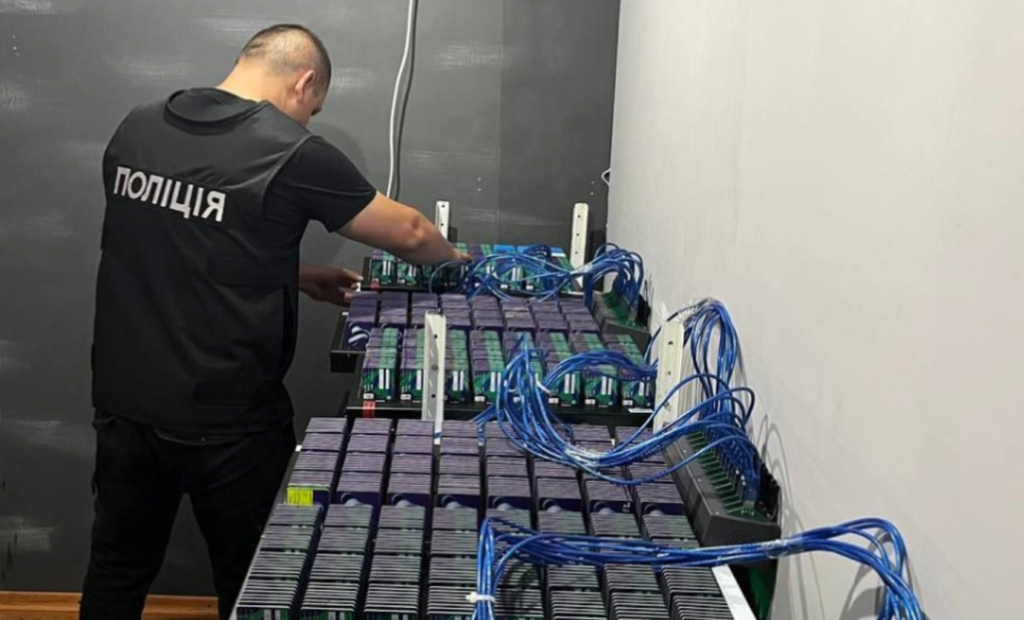
It’s not just lies, either; three weeks after Israel launched its attack on the Gaza Strip, following the vicious attach and hostage-taking by the Hamas terrorist group, the people of Paris awoke to find , especially Moldovans spray-painted all over the city. French investigators established that they were the work of Russia, sometimes acting through agents in Russia’s pay. Russia has not been blamed for every act of disinformation, some of which was clearly aimed at stirring up hatred over refugees and a housing shortage. Tommaso Canetta, who works for the Italian fact-checking organisation, Pagella Politica, says he’s most worried about “disinformation just before the elections that attacks the Green Deal or the pandemic plan.”
Russia started its disinformation warfare back in 2014, when it pioneered its so-called “bot farms” to spread false information about its invasion of Crimea. In February, Viginum, the French foreign information watchdog, said it had uncovered preparations for a massive disinformation campaign in France, Germany, Poland and other European countries, linked partially to the second anniversary of Vladimir Putin’s unprovoked invasion of Ukraine and to the upcoming European elections. Viginum found 193 websites, which it has given the code name “Portal Combat”, and more than fifty of them are new, putting out news in French, German, Polish and English. Mainly, the sites redistribute false news about the war in Ukraine. It’s all about destabilisation, but it threatens to upset the real voting intensions of citizens and distort the result. Viginum said it had found some 1,095 bots on the “X” (formerly Twitter) site, publishing 2,589 postings, cloning familiar Western websites linked to a Russian internet site, ironically and misleadingly entitled “Recent Reliable News.” It is not at all reliable and is packed with lies.

France fears it is Moscow’s favourite target, trying to stir up dissent and undermining French backing for Ukraine while supporting Marine Le Pen of the far right, who receives financial backing from Russia, as several far right politicians do. France, Germany and Poland have recently accused Russia of assembling a network of pro-Russian websites aimed at undermining governments. They are determined to stop this divisive attack by Russia that is intended to prevent free and fair election in Europe. Russia has used the network to suggest that Zelensky has lost the support of his long-term Western allies, which simply isn’t true, but Putin cares nothing about truth, of course. The European powers are expecting Russia’s dishonest and dishonourable campaign to accelerate as the elections draw nearer. Any propaganda you see, whoever it claims to be from, should be checked very thoroughly as regards to its real origin.
All news outlets in Russia are controlled by the Kremlin. What the Kremlin says is seldom true and usually unpleasant. For six nights each week, there is a television programme of political chatter, chaired by Vladimir Solovyov, a leading voice in Russian propaganda. Mostly, the talk is to belittle Ukraine and its allies and debating what Russia can do. Solovyov suggested that one option could be to “turn the world to dust”, by which we must assume he’s advocating the use of nuclear weapons on every country outside Russia. That would clearly be a very drastic move that would invite the arrival of similar bombs from the Western allies. When Russian victory, is invariably reported by Russian television news reports that the defeated place has been “liberated from the neo-Nazis”. It’s said with conviction, even though the only neo-Nazi involved in the war works in the Kremlin. .
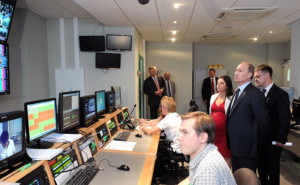
Putin’s untrue stories are repeated in Russia’s “newspapers”, which are really simple propaganda sheets. TV news reports often mock Ukraine’s President Zelensky and talk of UK President Joe Biden’s declining mental health. It should be embarrassing to Russians, but since they are only ever told lies, they don’t realise how fake their supposed “news” really is. Putin is, to put it bluntly, a liar, and he orders the people he controls to lie, too. Among the nonsensical stories that are often repeated, Russian media insists that the sanctions imposed by Western nations are causing hardship in the West, but not in Russia. That said, most news coverage (a lot of it untrue, too) is about the war in Ukraine and how brave Russian soldiers are standing up to what the media calls “Ukrainian fascism”. We must assume that Putin and his propagandists don’t actually know what fascism is. In case that’s true, here is the Wikipedia definition: “Fascism is a far-right,
authoritarian, ultranationalist political ideology and movement, characterized by a dictatorial leader, centralized autocracy, militarism, forcible suppression of opposition, belief in a natural social hierarchy, subordination of individual interests for the perceived good of the nation or race, and strong regimentation of society and the economy.” It sounds rather like Russia under Putin, in fact.
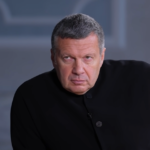
The New Yorker reports that a historian from Yale, Timothy Snyder, has coined the expression “schizo-fascism”, to describe actual fascists who call their enemies “fascists”, like Putin. He has also pointed out that Putin has adopted a tactic used by Adolf Hitler: tell a lie so outrageous that the cost of refuting it is simply too much for most people. For instance, Putin claims that “Jews are the worst antisemites”, which is rather like saying that giants are the smallest people. Solovyov has described Zelensky as “a supposed Jew”.
The whole thing would be funny were it not for the fact that Putin uses these ridiculous lies to explain his “brave” action against the supposed fascists running Ukraine. Now, with European elections coming up, Putin is using his propaganda machine to spread falsehoods in the hope of influencing the outcome. He does not believe in democracy, but he firmly believes in disrupting it to get the result he wants.
| TRUTH AND LIES, SLEEP WELL
Putin began his first presidential term, back in 2000, with a state takeover of Russia’s leading privately-owned television channel. Within a few years, all broadcast television, even local stations, were under state control. News outlets are not allowed to criticise the President, nor can they question the logic of the way in which Putin’s unholy war against Ukraine is being conducted. When (if!) Russia ever gets rid of Putin it will take years for the Russian people to learn and to understand what is really happening in the world. We must assume they actually believe the utter nonsense Putin trots out as fact. His influence has always been entirely malign, and it seems to be getting worse. In Russia, there is no such thing as “free speech”; Putin has signed into law a rule that criminalises any reporting that contradicts the Russian government’s point of view. Russian television insists that Russian troops are always well-mannered (they’re not) and that the Ukrainian people greet them as “liberators”. Of course that’s untrue, but then state media is not permitted to mention Russia’s bombing of Kyiv while it must also claim that Ukraine has suffered no civilian casualties. It’s so utterly ridiculous that it would be amusing if Putin’s words didn’t cause so much death and destruction. The media are not allowed to use the words “war” or “invasion”, either.
Many who follow (and who actually understand) what Putin means say that we in the West simply don’t “get” him. After all, whatever we may think of him, he is still one of the most important people in the world, even if he is threatening to turn the world to ash. Navalny spent years denouncing the corruption he saw in Putin’s government. But it is true that we in the West, including our politicians, journalists and academics, have made little attempt to understand the man behind the myths. In his excellent and often quite surprising book, “We Need to Talk About Putin”, Mark Galeoti says that the West gets him wrong. This may well be true, perhaps we’ve been unfair. But he kills people.
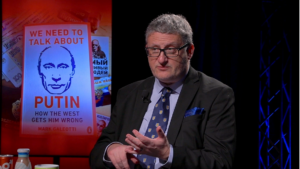
He also says that Western “disrespect” for Russia is one of the problems. He seems to think that only Russians suffered death or hardship in the Second World War, which is nonsense, of course. The popular singer Semyon Slepakov composed what he called a “lullaby”, which attracted more than two million views on social media. Its words, however, are very controversial and have angered some. Indeed, it’s hard to believe that anyone could have anything but contempt for someone who could assemble such hate-filled lines just to demonise the people you’re busy killing. The opening lines are:
“Don’t cry, little one;
Don’t fear the wolves and storms.
We have a much worse enemy,
The Ukrainian Nazis.
They’re the cause of all our troubles,
If not for them. We could live in peace.”
Alternatively, Russia could simply stop attacking its neighbours, but that option seems not to have occurred to Slepakov, nor to Putin and his lickspittle toadies. Russia’s claims that it never harms civilians, that its troops are invariably polite and that Ukrainian people welcome them with open arms as “liberators” are, of course, complete nonsense. Or, to put it another way, they are simply more of Putin’s endless stream of self-serving lies. He and his minions believe themselves to be invincible.
| SAVE MONEY AND MONEY WILL SAVE YOU (POSSIBLY…)
In some ways, Putin has correctly assessed Western attitudes to life. In the West, money rules. Most of the decisions the governments take are, at the root of it, about cash. A proposal by UK Foreign Secretary (and former Prime Minister) Lord David Cameron to seize Russian assets in the City of London in order to fund the rebuilding of Ukraine is being fiercely opposed by influential (or extremely rich, if you prefer) bankers in the city. These financiers are said to be worried that a seizure of funds by the state could “damage trust” among clients who may relocate their wealth to another financial hub. Lord Cameron spoke of a “moral and economic” case to seize £250-billion (€291.65-billion) of assets held in Western banks. Of which £26-billion (€30.33-billion) is held in the UK.
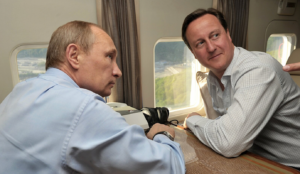
Perhaps more defensible as an argument is the banks’ supposed fear that some of the seized assets could be used to top up Treasury coffers, rather than to help Ukraine. Even the bankers doubt the motivation of bankers. They should remember the words of Bob Dylan: “All the money you made will never buy back your soul”. But of course, Dylan was hardly a poor man. Neither, I understand, is Putin.
Putin still seems to adhere to that ancient belief, dating back to when we all lived in caves and hunted mammoths, that physical strength equates to the qualities needed for leadership. “With clocklike regularity,” writes Professor Brian Klaas, in his book about power and its misuse, “Corruptible”, “Vladimir Putin releases photos of himself shirtless on a horse, practising judo, or performing some other warrior show of strength.” It seems an odd thing for a supposed leader to do. “Those signals can be effective,” he continues, “because our Stone Age brains still link some perceptions of leadership to physical size.” Needless to say, size and strength are in no way related to an ability to govern well and take good decisions. Otherwise, we could replace all those mathematicians and physicists with wrestlers on the grounds that their strength and ability to twist people’s arms up their backs was just as sound a qualification for running a country as having a good brain. But of course, Russia has never known true democracy, nor really understood the notion of letting the people choose their own leaders to run their country and take decisions. Putin has never understood the notion and sadly never will. That’s why it’s not a recipe for long life and happiness to openly defy the man. He deals with any would-be opponents in a terminal way.
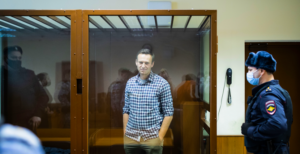
You only have to look at what he has had done to the dissident Alexie Navalny, murdered during a 19-year sentence in a prison camp inside the Arctic Circle just for disagreeing with Putin. Navalny’s widow has sworn to carry on his fight, but it will have to be from outside Russia, or she won’t see out this year. Putin is not only a tyrant, he’s a murderer.
Putin had long been an admirer of the KGB, Russia’s infamous secret intelligence service. He had wanted to join up, seeing himself as a Soviet James Bond, chasing down and shooting the enemies of Bolshevism. He blamed Lenin for “creating” Ukraine on what had previously been Russian land. On TV, he described Lenin as its “creator and architect,” by giving in to nationalism. The people living there had not been consulted, but then re-attributing land to powers other than the obvious is something he should know about, having done much the same himself. He should recall Lenin’s words in 1919 about how to deal with troublesome leaders. “In England and France,” he wrote, “they executed their kings some centuries ago, but we were late with ours.” Putin himself seems to regard his unique form of one-man government as the best way to rule his country. Certainly, it sets aside arguments. It’s one man, one vote; and he is the one man, of course.
| DO AS YOU’RE TOLD!
Putin retains close links with his old friends and comrades in the KGB and its successors. His own background is strange, having been raised in a single room in a cramped and over-crowded communal apartment in Leningrad, that lacked a bath and even access to hot water. According to Putin, Ukraine has in reality been a part of Russia for centuries. It was, he argues, the artificial creation of the Ukrainian Soviet Socialist Republic and then the subsequent breakup of the USSR in 1991 that led to the “historical mistake”, as he calls it, of Ukraine becoming an independent state when, he claimed, it had never been one originally. Such is history; in Russia’s case, it’s somewhat malleable.
Much of the debate centres on Chekism (Чекизм), a type of governance in the old Soviet Union in which the police and security services had ultimate control of everything. Wikipedia explains it very well as: “the underlying ideology that promotes and popularizes political police violence and arbitrariness against real and imagined enemies of the state.” Apparently, Putin is still very keen on it. He remained in the KGB for seventeen years and never really left it. According to Mark Galeotti’s book, Putin once met with US Senator John McCain. After meeting Putin, McCain said he’d looked Putin in the eyes, where he’d seen three things: “a K, a G, and a B.” There was nothing else there. As far as Putin was concerned, it seems, the entire world was and remains Russia’s enemy.
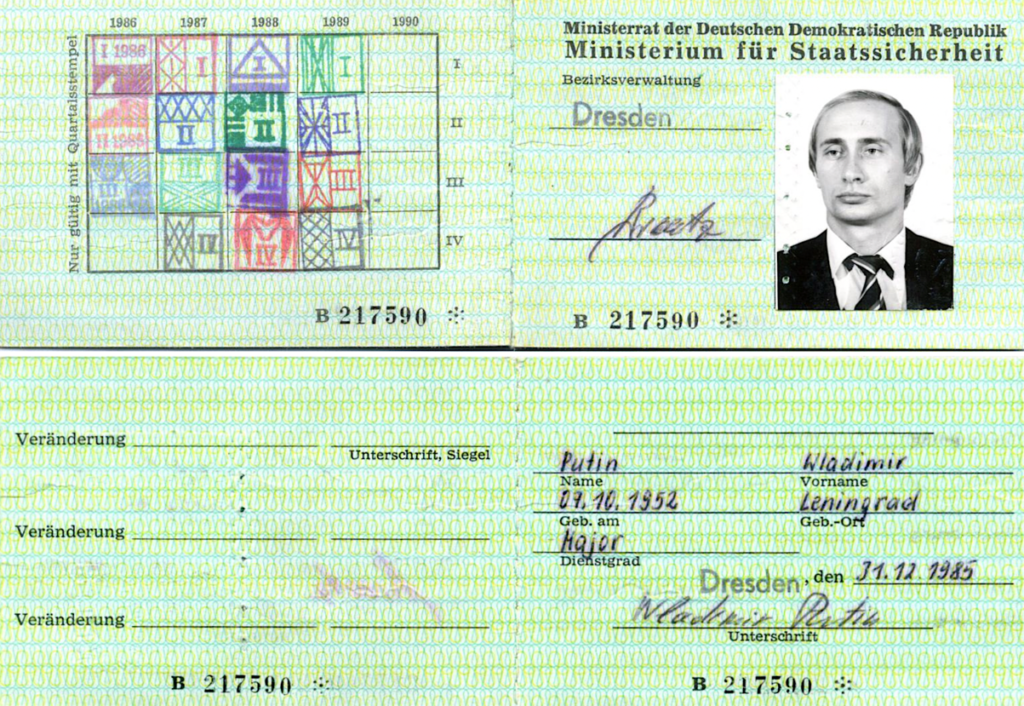
For Putin, it will always be an ongoing war against the West. There can be no rapprochement as long as Russia and the West view the world so differently. From Putin’s viewpoint, Russians are always the good guys. That is not to view of the Poles. In 1939, thousands of them were crowded onto packed train with no food, little water and no sanitation, for a long ride to a forced labour camp in Siberia to cut down trees. The Russians may have forgotten about it, but the Poles haven’t. In Putin’s version of the world, it’s we Westerners who are so irredeemably wicked. On Solovyov’s television programme, Putin was asked about the likelihood of nuclear war and replied:” “If they start a nuclear war, we will respond. But we, being righteous people, will go straight to Heaven, while they will just croak.” It’s a very strange and horribly one-sided view of global politics (just ask the Poles!). Of course, all television broadcasts in Russia are controlled by the state, with supposedly rival stations broadcasting virtually identical newscasts, running the same stories in the same way and in the same order. Truth has no place on Russian media, with supposedly Ukrainian war prisoners confessing to raping Russian women and murdering their husbands.
Disinformation and outright lies are already being broadcast ready for the European elections later this year and many, many more are on the way as Putin steps up his campaign. Russian government officials constantly and falsely portray Russia as a perpetual victim and its aggressive actions as no more than a response forced upon them by the United States and its democratic partners and allies. Russia also broadcasts made-up nonsense about LGBTQ+ issues and has accused US operatives of seeking to influence various elections, albeit in not quite the determined and well-organised manner chosen in Moscow. Those elections in Europe will be fair and correct, but they won’t be reported that way by a Russian media devoted to distorting truth. The Russian news reports distributed in Turkey claimed fraud with regard to religion and there were also claims (untrue, of course) that a minority party would be excluded from parliamentary elections in Montenegro. There were false claims about voter fraud in Spain and also claims of ballot tampering, deliberate miscounting of votes and various other activities, all of the reports penned by Russian agents. The Russians also had a hand in helping Britain’s Conservatives win the vote to leave the EU, saying Britain would save £350-million (€409,47-million) each week by leaving the Union. Britain is still counting the cost.
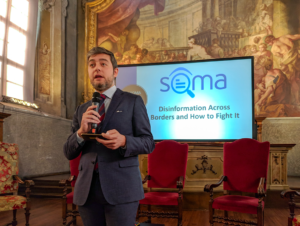
We can certainly anticipate a continuation of Putin-style lies in the run-up to European elections. He clearly sees no shame in simply misleading people; the truth means nothing to him, which is a shame. Russia used to be an honourable country. Topics expected to crop up, severely distorted, include the war in Ukraine, issues surrounding immigration and refugees and climate change, in which Russia seems not to believe. The chair of the European Digital Media Observatory (EDMO) is Giovanni Zagni, and among the fake news items he has identified is one on Russian television claiming that the US is releasing diseased birds in Russia to spread disease. Another report on Russia state television claimed that Zelensky was drunk and had lost his mind. In real life, Putin should be arrested for putting out misinformation, but he won’t be, of course. Similar stories have also appeared on one British TV network that seems sympathetic to the Kremlin. It’s not easy to counter. “A lot of communications between users has moved towards closed groups and private chats,” warns Zagni, “and those channels are largely outside the possibility of monitoring what is going on there.” The safest thing to do, perhaps, is simply to conclude that any story with a Russian origin is almost certainly untrue. NATO concedes that Russia’s constant disinformation campaign poses a threat. “Russia wants to establish spheres of influence and control other countries,” it warns, “through coercion, subversion, aggression and annexation. It uses conventional, cyber and hybrid means – including disinformation – against NATO Allies and partners.”
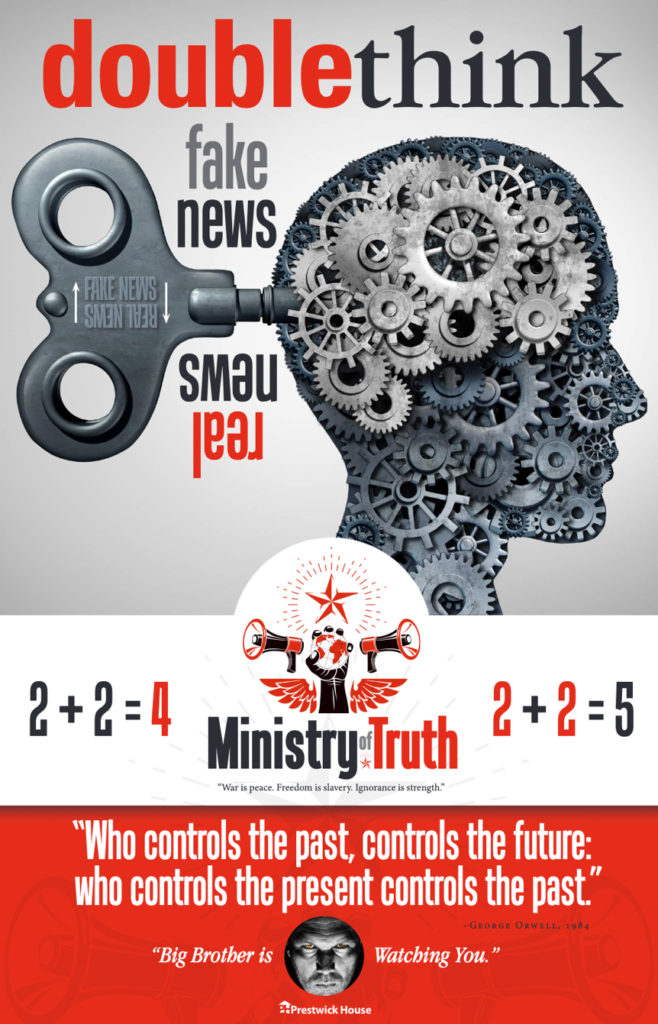
Russia media reports that NATO is at war with Russia in Ukraine. This is untrue. Russia claims NATO has broken its promise not to expand. No such promise was ever made. Russia claims NATO deployments threaten Russia, but they don’t. NATO has suspended cooperation with Russia over its attack on Ukraine but remains open to dialogue. Russia is a great country, with a great history. Sadly, it currently suffers under the deceptive and totally dishonest leadership of a man who only seeks glory for himself. We must ignore everything he says, because it’s almost certainly untrue.

